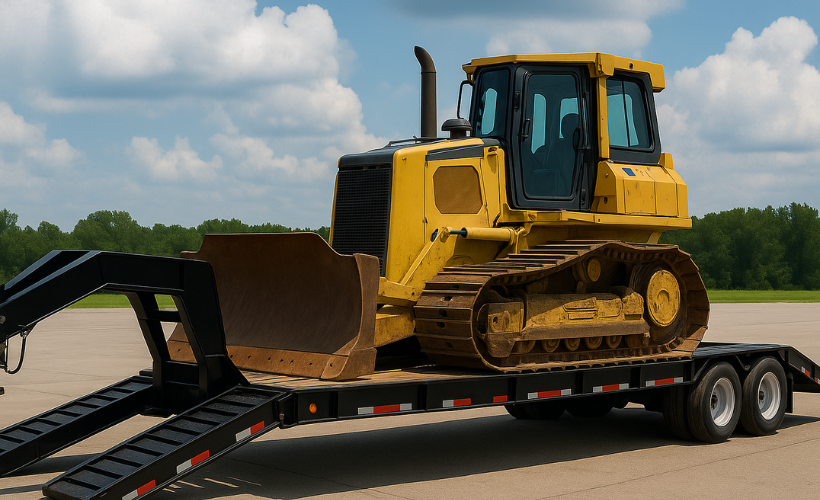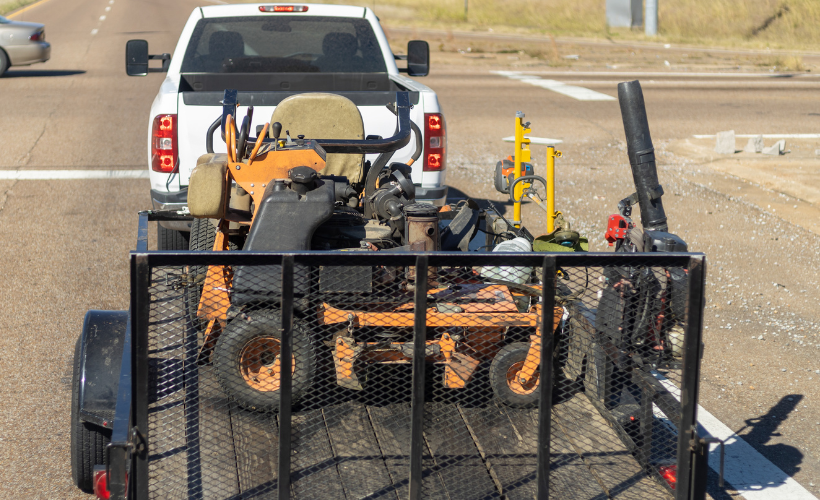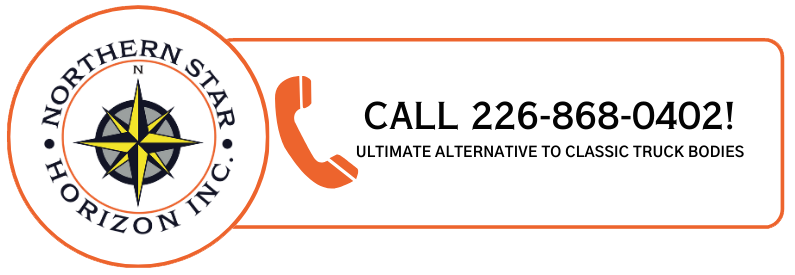Equipment Hauler Trailers: A Must Have for these Businesses

Equipment hauler trailers serve as the backbone of countless businesses across Ontario. These specialized transportation solutions enable companies to move heavy machinery, tools, and equipment safely from one location to another. Northern Star Trailers understands that businesses need reliable equipment trailers that withstand rugged weather conditions while protecting valuable cargo during transport.
Why Equipment Hauler Trailers Matter for Modern Businesses
Heavy equipment represents major investments for most businesses. A single piece of machinery can cost thousands or even hundreds of thousands of dollars. Moving this equipment without proper transport creates serious risks including damage, theft, and safety hazards.
Equipment hauler trailers provide secure transport that protects these investments. They feature reinforced decks, heavy-duty axles, and specialized loading systems that accommodate various equipment types. Professional-grade equipment trailers also include safety features like breakaway systems, proper lighting, and secure tie-down points.
Understanding the different types of trailers available helps businesses select the right solution. Equipment trailers, dump trailers, car hauler options, enclosed cargo trailers, and flatbed trailer designs each serve specific purposes. A car hauler might transport vehicles between locations, while dump trailers handle materials like debris and gravel. Flatbed designs offer versatility for oversized loads.
The efficiency factor cannot be overlooked. Businesses that own equipment hauler trailers avoid rental costs and scheduling delays. They control their transport timeline and can respond quickly to job opportunities or emergency situations.
Industries That Depend on Equipment Hauler Trailers
Construction Companies
Construction businesses rely heavily on equipment hauler trailers to transport excavators, bulldozers, skid steers, and other heavy machinery between job sites. These companies often work on multiple projects simultaneously, requiring frequent equipment movement.
Modern construction equipment weighs several tons and requires specialized loading methods. Equipment hauler trailers with hydraulic tilt decks or sturdy ramps make loading and unloading efficient and safe. This capability reduces labor costs and minimizes equipment damage during transport.
Construction companies also benefit from trailers that can handle various equipment sizes. A versatile equipment hauler trailer accommodates everything from compact track loaders to large excavators, maximizing the investment value.
Landscaping Businesses
Landscaping operations depend on equipment hauler trailers to transport mowers, aerators, trenchers, and other specialized tools. These businesses often service multiple properties daily, making efficient equipment transport essential for profitability.
Landscaping equipment varies significantly in size and weight. Equipment hauler trailers provide the flexibility to carry multiple smaller machines or one large piece of equipment. This versatility allows landscapers to bring the right tools for each specific job.
Weather protection becomes crucial for landscaping businesses. Many equipment hauler trailers offer optional covers or can be paired with enclosed trailers to protect expensive equipment from rain, snow, and UV damage during transport.
Agricultural Operations
Farmers and agricultural businesses use equipment hauler trailers to move tractors, harvesters, tillage equipment, and livestock handling tools between fields and storage facilities. Agricultural equipment tends to be particularly heavy and valuable.
Seasonal demands make equipment hauler trailers essential for farming operations. During planting and harvest seasons, farmers need to move equipment quickly and efficiently to maximize their productive time. Delays in equipment transport can result in significant crop losses.
Agricultural equipment also requires regular maintenance and repairs. Equipment hauler trailers enable farmers to transport machinery to service centers without depending on expensive commercial transport services.
General Contractors
General contractors handle diverse projects requiring various specialized equipment. Equipment hauler trailers allow these businesses to transport tools and machinery specific to each project type, from concrete equipment to HVAC installation tools.
The versatility of general contracting means equipment needs change frequently. Equipment hauler trailers provide the flexibility to adapt to different project requirements without multiple specialized transport solutions.
Key Features That Make Equipment Trailers Essential
Equipment trailers incorporate several critical features that distinguish them from standard trailers. Understanding these features helps businesses select the right trailer for their specific needs, whether choosing car hauler designs, dump trailers, or flatbed trailer configurations.
Deck strength and design form the foundation of effective equipment haulers. Heavy-duty steel construction with proper weight distribution ensures the trailer can handle substantial loads without structural failure. Car hauler decks often include specialized wheel guides and tie-down systems. Flatbed trailer surfaces typically feature anti-slip materials or patterns that provide traction for equipment tires.
Loading systems significantly impact operational efficiency for all types of trailers. Options include:
- Hydraulic tilt decks that eliminate the need for ramps on car hauler and equipment trailers
- Heavy-duty ramps with various weight capacities for flatbed applications
- Drive-over fenders for low-profile equipment and car hauler use
- Removable fenders for oversized loads on dump trailers and flatbed trailer designs
Axle configurations determine the trailer’s weight capacity and road handling characteristics. Tandem axles provide higher weight capacity and better stability for car hauler and dump trailers, while single axles offer maneuverability advantages for smaller operations. Proper wheel alignment and quality wheel bearings ensure safe operation across all types of trailers.
Braking systems ensure safe stopping power when hauling heavy loads. Electric brakes integrate with the towing vehicle’s braking system, while hydraulic surge brakes provide independent stopping power. Car hauler trailers often feature enhanced braking systems due to the valuable cargo they transport.
Weather protection varies among different types of trailers. Enclosed cargo trailers provide complete protection from elements, making them ideal for transporting sensitive equipment or vehicles. Open car hauler designs may include optional covers, while dump trailers typically operate exposed but feature drainage systems for weather management.
Choosing the Right Equipment Trailers for Your Business
Selecting the appropriate equipment trailers requires careful consideration of business needs, equipment types, and operational requirements. The wrong choice among the various types of trailers can limit business capabilities or result in unnecessary expenses. Whether considering car hauler options, dump trailers, or enclosed cargo trailers, proper selection ensures optimal performance.
Weight capacity represents the primary selection criterion for all types of trailers. Businesses must calculate the combined weight of their heaviest equipment plus any additional cargo. Safety margins should account for potential equipment additions or unexpected heavy loads. Car hauler specifications must accommodate vehicle weights, while dump trailers require capacity for materials like gravel and debris.
Deck length and width determine which equipment types the trailer can accommodate. Measure the longest and widest equipment pieces to ensure proper fit. Consider future equipment purchases that might require additional trailer capacity. Car hauler dimensions must match vehicle wheelbases and track widths for secure transport.
Loading height affects ease of use and safety for all equipment trailers. Lower deck heights reduce loading angles and make equipment mounting easier. However, very low trailers may have ground clearance limitations on rough terrain. Car hauler designs often feature low deck heights for easier vehicle loading, while dump trailers may require higher clearance for proper dumping operation.
Trailer features should match operational needs across different types of trailers. Businesses that frequently load in tight spaces benefit from tilt decks on their equipment trailers, while those with loading docks might prefer ramp systems. Weather exposure levels determine whether covers or enclosed cargo trailers provide value. Car hauler applications may require specific wheel chocks and tie-down configurations for vehicle security.
Safety Considerations for Equipment Transport
Equipment transport involves significant safety responsibilities that affect both operators and other road users across all types of trailers. Proper safety practices protect people, equipment, and business liability whether using car hauler, dump trailers, or other equipment trailers.
Load securement requires proper techniques and equipment for all trailer applications. Heavy machinery must be secured with chains, straps, or both, following specific load securement regulations. Car hauler operations require specialized wheel restraints and tie-down points rated for vehicle weights. Tie-down points should be inspected regularly and rated for the loads they will secure.
Weight distribution affects trailer stability and towing vehicle handling. Improper weight distribution can cause dangerous swaying, reduced braking effectiveness, or excessive tongue weight that overwhelms the towing vehicle.
Regular maintenance keeps all types of trailers operating safely and reliably. Key maintenance areas for equipment trailers, car hauler units, and dump trailers include:
- Tire condition and pressure monitoring across all wheel assemblies
- Brake system inspection and adjustment for car hauler and dump trailers
- Bearing lubrication and replacement for wheel assemblies
- Light and electrical system functionality on all types of trailers
- Structural component inspection for wear or damage
- Hydraulic system maintenance for dump trailers
Operator training ensures safe loading, transport, and unloading procedures. Drivers should understand weight limits, proper loading techniques, and emergency procedures for equipment movement or mechanical failures.
Transform Your Business Operations with Professional Equipment Transportation
Equipment trailers represent essential tools for businesses that depend on heavy machinery and specialized equipment. The right trailer enhances operational efficiency, protects valuable investments, and provides the flexibility to respond to changing business demands. Whether your operation requires car hauler capabilities, dump trailers for material handling, enclosed cargo trailers for weather protection, or flatbed solutions for oversized loads, selecting from the proper types of trailers ensures success.
Northern Star Trailers offers a comprehensive selection of equipment trailers built for Ontario’s demanding conditions. Our trailers feature heavy-duty construction, reliable components, and practical designs that meet real-world business needs. From compact utility options to heavy-duty gooseneck models, car hauler designs to versatile flatbed configurations, we provide solutions that grow with your business.
Contact Northern Star Trailers today to discover how the right equipment hauler trailers can streamline your operations and protect your valuable equipment investments. Our knowledgeable team will help you select the perfect trailer from our various types of trailers and provide the ongoing support you need for years of reliable service.
The post Equipment Hauler Trailers: A Must Have for these Businesses appeared first on Northern Star Horizon.
source https://northernstartrailers.ca/equipment-hauler-trailer-for-businesses/


Comments
Post a Comment